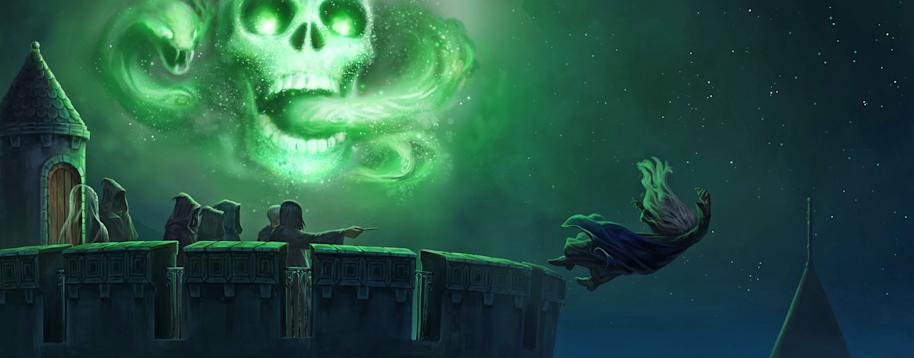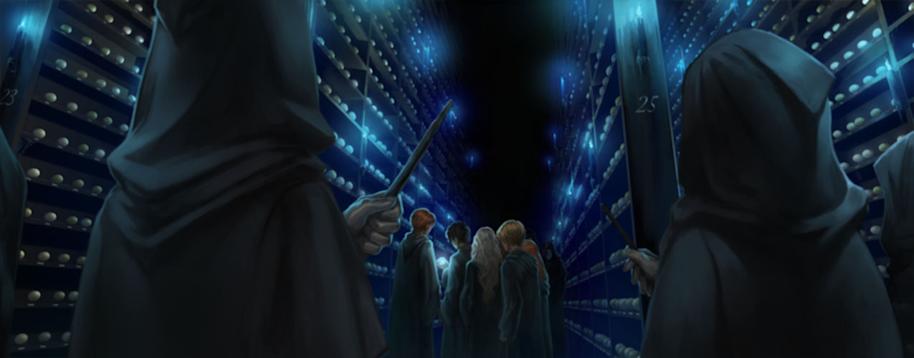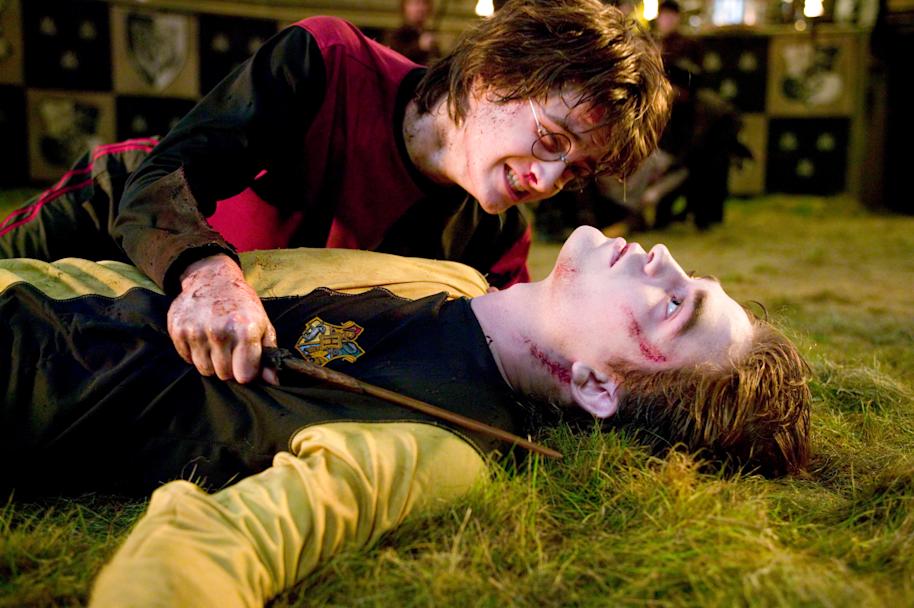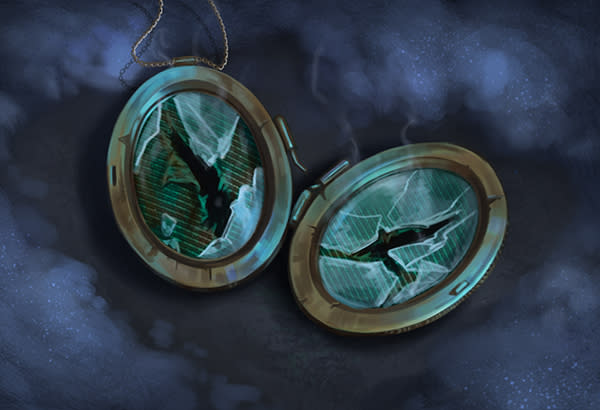
Some would say there’s no spell worse than Avada Kedavra, the Killing Curse that Voldemort used so indiscriminately. But it’s definitely not the wizarding world’s only Unforgivable Curse. And beyond those three, there are other types of magic that arguably do more harm than anything else.
So – what is the worst thing a wizard or witch could cast? Let's take a look...
Legilimency ('Legilimens')
An unpleasantly intrusive spell, any witch or wizard adept at Legilimency has the means to access another person’s thoughts and memories. Seriously skilled Legilimens like Queenie Goldstein could instantly read minds like books, and those with sinister motives – like Voldemort, when he made Harry dream of Sirius in the Department of Mysteries – could take a person’s feelings and turn them to their advantage. In Harry’s case this ultimately led to Sirius’s death, so anyone who values privacy and safety should definitely perfect Occlumency, aka the practice of repelling a Legilimens attack using your mind.

Imperius Curse ('Imperio')
The first of the three Unforgivable Curses, Imperius gives the spell-caster total control over their subject. As fake-Moody explains as he demonstrates on a spider:
‘I could make it jump out of the window, drown itself, throw itself down one of your throats…’
Harry Potter and the Goblet of Fire
Those subjected to the Imperius Curse don’t seem aware of what they're doing while under another person’s control, but imagine how traumatic it would be to look back on actions you made against your will. From the imprisoned Moody, kept weak and quiet so a Death Eater could impersonate him, to (relatively) innocent wizards like Stan Shunpike, forced to join Voldemort’s side, Imperius robs its victims of any autonomy. It’s utter subjugation. Not to mention that the very existence of the Imperius Curse gives others an excuse for their actions after the fact.

Cruciatus Curse ('Crucio')
The second Unforgiveable Curse, Cruciatus causes such excruciating pain that when Voldemort used it on Harry, it was ‘so intense, so all-consuming, that he no longer knew where he was…’
Repeated use of the Cruciatus Curse is torture and Bellatrix Lestrange subjected the Longbottoms to such extremes of pain that it sent them insane. ‘Better dead than what happened to them,’ was what Moody said of the Longbottoms’ fate, and there’s a sad ring of truth to that statement.
Harry tried to use this spell himself. The first time was against Bellatrix after she had killed Sirius. His attempt was unsuccessful because, as Bellatrix mockingly explained: ‘You need to really want to cause pain – to enjoy it – righteous anger won’t hurt me for long…’
This shows that Cruciatus is bad for both parties – the wizard or witch has to mean pure evil intent in order to even cast it.

The Killing Curse ('Avada Kedavra')
Obviously there’s no coming back from this spell, and according to the Ministry of Magic’s classifications (and, again, fake-Moody) this is the worst Unforgivable Curse. If this countdown were about which spell is the most unforgivable we might agree – but weirdly enough it’s not. In our eyes, the quick death afforded by Avada Kedavra seems to us a (very slightly) better option than suffering the curses below. At least Cedric Diggory had no inkling of what was about to happen and probably experienced little, if any, pain, unlike those left behind.

'Sectumsempra'
The note accompanying this spell in the Half-Blood Prince’s textbook reads ‘For Enemies’, so it stands to reason this is not a charm to be used lightly. It causes excessive bleeding, as victims’ faces and chests react to being ‘slashed with an invisible sword’. When Harry used this on Malfoy not knowing what it would do, it was only Snape’s intervention that appeared to save him from bleeding to death. Left to its natural conclusion this is a particularly nasty spell, given the shock and fear it must cause in its victims before they die. At least Avada Kedavra is instantaneous.

Creating a Horcrux
All of the spells we’ve mentioned show that it's not just the victim that suffers from the spell chosen, but the psychological and moral state of the caster. Creating a Horcrux involves some of the Darkest magic imaginable – so dark that none of the schoolbooks in the Hogwarts library even mention it. Only a wizard like Voldemort, obsessed with immortality and utterly lacking in love, would even consider it. It requires the murder of another person, after which the spell-caster can split their own soul and place it in an object outside the body. Theoretically this makes them harder to kill but, as Slughorn says in Half-Blood Prince: ‘… few would want it, Tom, very few. Death would be preferable.’
Voldemort did not care. He chose to split his soul multiple times because, for him, life was more important than anything else – even his own soul. And so the worst spell in the wizarding world ensured the continued survival of its darkest wizard. Voldemort’s Horcruxes showed his utter disregard for others – creating a Horcrux didn’t just mean killing someone, it meant using that person’s death for your own gain. Both are soulless acts, and everyone except Voldemort knows a life without a soul is no life at all. Like Dumbledore said, there are many things worse than death. Splitting your soul is definitely one of them.




